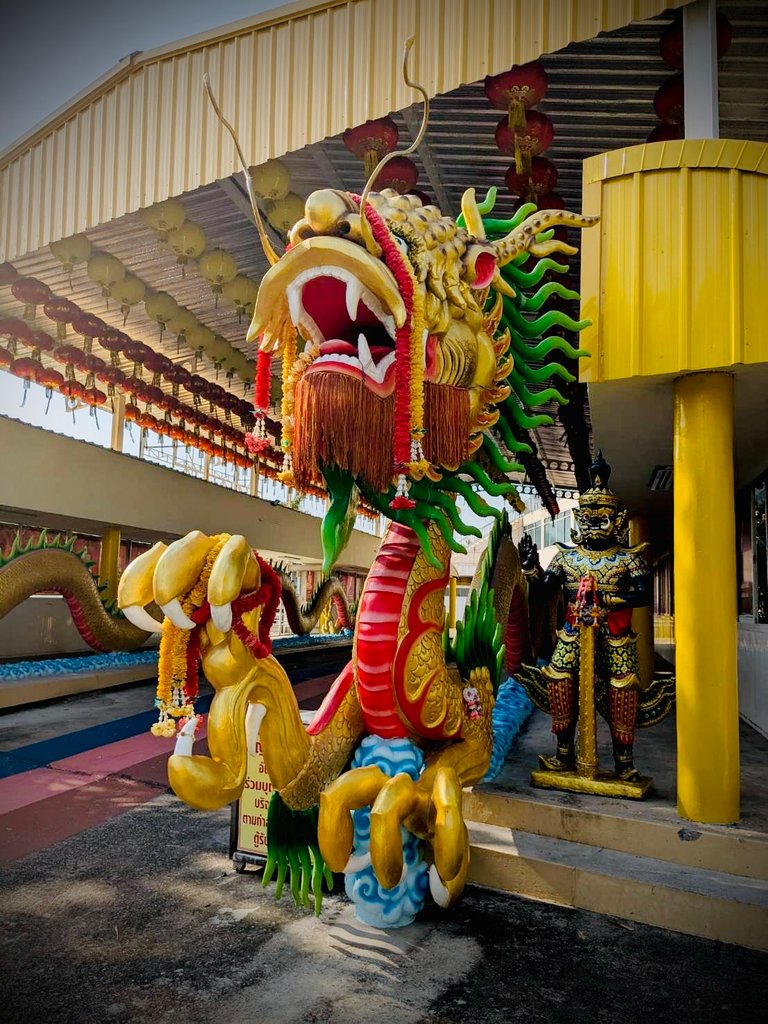Today I visited a Chinese temple.
.
I’m recommend the picture of a dragon, which the Chinese believe will bring power and greatness. 🐲Happy Thursday.🧧

Today I visited a Chinese temple.
.
I’m recommend the picture of a dragon, which the Chinese believe will bring power and greatness. 🐲Happy Thursday.🧧

This is according to Deep Seek
Chinese culture's fascination with dragons stems from their deep historical, cultural, and symbolic significance. Unlike Western dragons, which are often depicted as fearsome and malevolent creatures, Chinese dragons are revered as benevolent, powerful, and auspicious beings. Here are some key reasons why dragons hold such an important place in Chinese culture:
Symbol of Power and Strength: Dragons are seen as symbols of immense power, strength, and authority. They are often associated with the emperor and imperial power, representing the ruler's divine right to govern.
Bringers of Good Fortune: Chinese dragons are believed to bring good luck, prosperity, and success. They are often invoked in rituals and celebrations to ensure a bountiful harvest, favorable weather, and overall well-being.
Control Over Natural Elements: Dragons are thought to have control over water, rain, floods, and storms. In agrarian societies, where water is crucial for farming, dragons were worshipped as deities who could influence the weather and ensure the fertility of the land.
Cultural and Historical Roots: The dragon has been a part of Chinese mythology and folklore for thousands of years. Ancient texts, legends, and artifacts frequently depict dragons, highlighting their enduring presence in Chinese culture.
Symbol of Harmony and Balance: Dragons are often associated with the concept of Yin and Yang, representing balance and harmony in the universe. They embody the dynamic interplay of opposing forces and the unity of dualities.
Ancestral Connections: Some Chinese legends suggest that dragons are the ancestors of the Chinese people. The mythical Yellow Emperor, a central figure in Chinese history, is said to have transformed into a dragon upon his death, further cementing the dragon's significance in Chinese heritage.
Art and Literature: Dragons are a common motif in Chinese art, literature, and architecture. They appear in paintings, sculptures, textiles, and even on everyday objects, symbolizing protection, wisdom, and good fortune.
Festivals and Celebrations: Dragons play a central role in many Chinese festivals, such as the Dragon Boat Festival and Chinese New Year. Dragon dances and dragon boat races are popular activities that celebrate the dragon's spirit and invoke its blessings.
Overall, the dragon's positive attributes and its deep-rooted presence in Chinese culture make it a cherished and enduring symbol, embodying the values, aspirations, and identity of the Chinese people.
Thanks for sharing
🥰
The dragon is colourful.
😅
Chinese culture is very drawn to dragons 🐉.
I will look why is that.